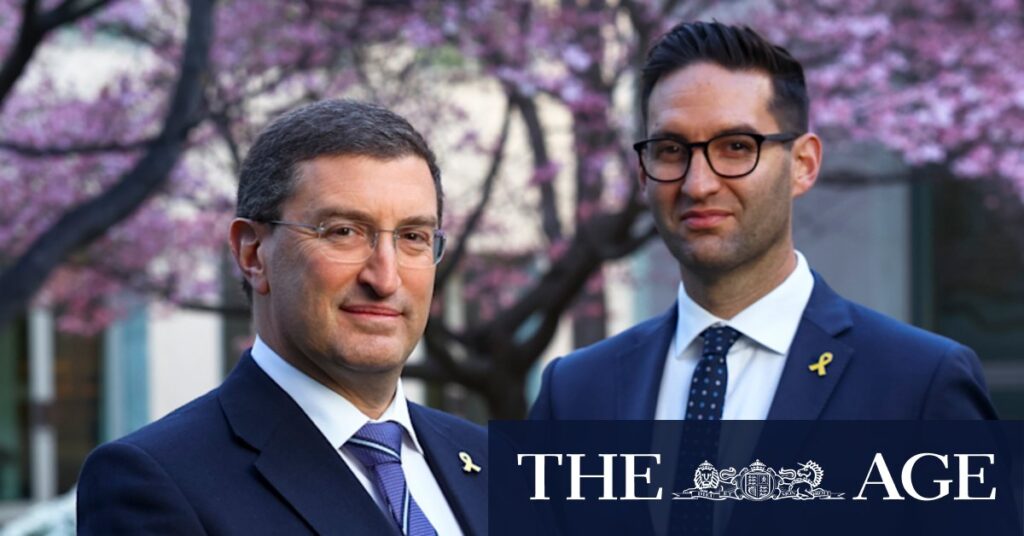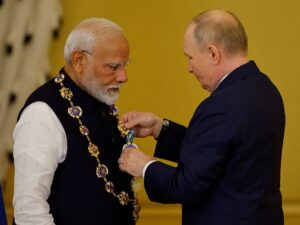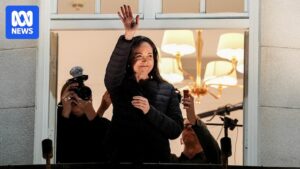
Josh Burns vividly recalls the acrid smell of smoke, paint, and kerosene permeating his office. Shattered glass littered the floor, and the windows bore the marks of a hammer’s fury. A photo of his head was defaced with red horns, an antisemitic trope. “I remember walking through, and thinking – how did it get to this?” he reflects.
Burns, a Jewish federal Labor MP, has a personal history intertwined with such hatred. His grandmother fled Germany in 1938, the year of Kristallnacht, when Nazis smashed the windows of Jewish-owned stores and synagogues. Fast forward to 2024 in Melbourne, and Burns found himself picking through the shards in his own office.
He was struck by the futility of the attack. “If you’re going after a Jewish MP’s office in Australia thinking it’s somehow going to influence the Israeli government, you’re on another planet,” he says. “If punching a hole in my office window was going to bring about peace in the Middle East, I would have done it myself.”
Political Unity in the Face of Hate
In Sydney, another Jewish MP, Julian Leeser, was horrified by the news. The Liberal member for Hornsby has also been vocal against the vilification of his community. Leeser has worked closely with Burns on these issues, earning respect for their cooperation across the political divide.
Leeser extended a gesture of solidarity by sending cakes to Burns’ staff, along with his support. “There’s a relationship of real mutual respect between us,” he says. “He’s got such a lovely sense of humour; we get along very well. [We] acknowledge that we happen to be from different political tribes, but we have things in common.”
For their principled approach, Leeser and Burns are the joint recipients of this year’s prestigious McKinnon Prize for federal political leadership.
“[They] showed courage and integrity in addressing antisemitism on the national stage,” says the citation, which praises their moderate and respectful approach.
Advocating for Social Cohesion
Both MPs are considered rising political stars, embodying dignity, maturity, and respect in their conduct. They have advocated for a national approach to social cohesion, including the appointment of a special envoy and taskforces to address antisemitism and Islamophobia.
Leeser was also commended for his principled stance on another issue. In early 2023, he resigned as shadow attorney-general and opposition spokesman for Indigenous Australians to campaign for a yes vote in the Voice referendum after his Liberal colleagues decided not to support constitutional change.
It’s not easy being at odds with the prevailing view of your party, says Leeser.
“You really wrestle with some of these issues, but you have to stand up for the things you think are right, because it’s your name on the door, your name on the seat, and you have to be able to look back and reflect on those,” he says.
Finding Common Ground
Burns’ position on antisemitism also put him at odds with some in his own party. He tries to avoid public disagreement, but acknowledges that “in any organization, when you’ve got such strong and diverse and difficult issues, it’s only natural that there will be disagreements,” he says. “How you disagree, and how you make your position is also really important.”
“I don’t seek to be anything other than a respectful colleague. People know I will stand by my convictions, and do so in a way that doesn’t diminish other people.”
Burns’ and Leeser’s friendship is not as unusual in parliament as it might appear to those whose impressions are formed by the rough and tumble of question time. “Most often you have to get along with people on the other side,” he says. “It does bolster the ability to try to get things done.”
Still, Burns and Leeser are closer than most. “We disagree on many topics,” says Burns, “and we’ve had long and detailed conversations about points over which we fundamentally disagree, and I can leave that conversation liking Julian a little bit more.”
Burns believes the wider political discourse could benefit from this approach.
“What does it achieve, to put people down, to scream at one another, to think that you understand where they’re coming from and what they believe? At what point does that bring us closer to peace on the other side of the world?”






